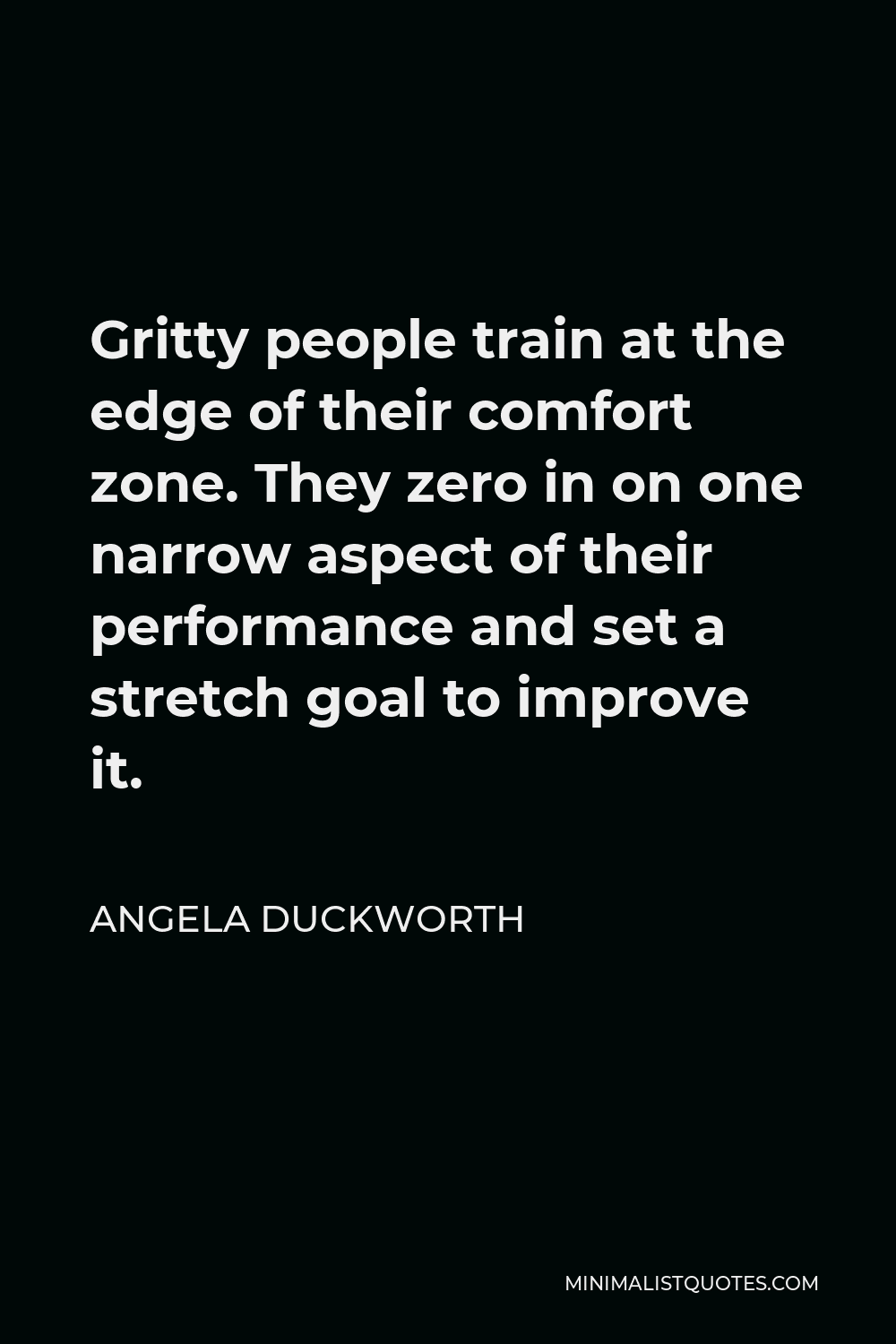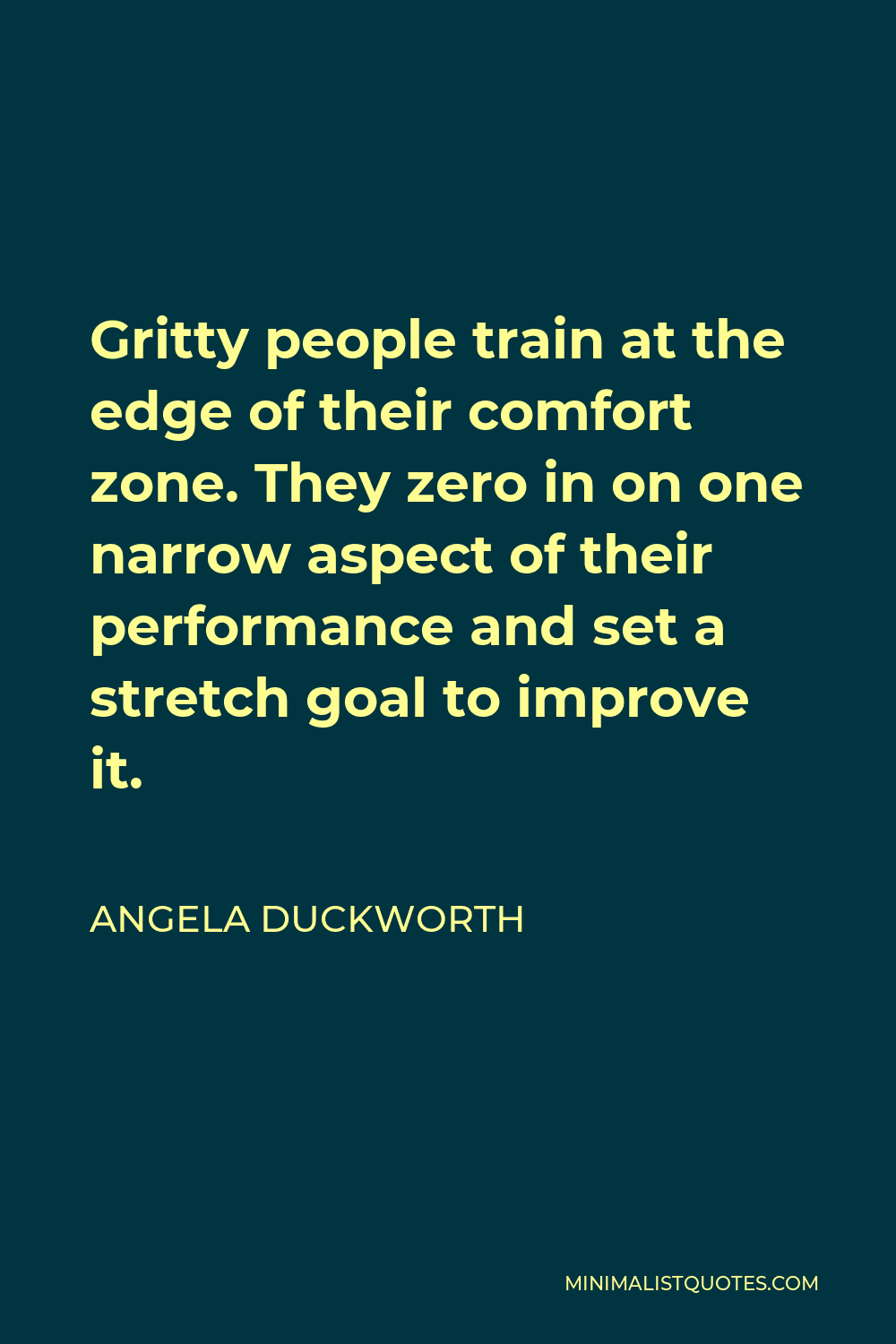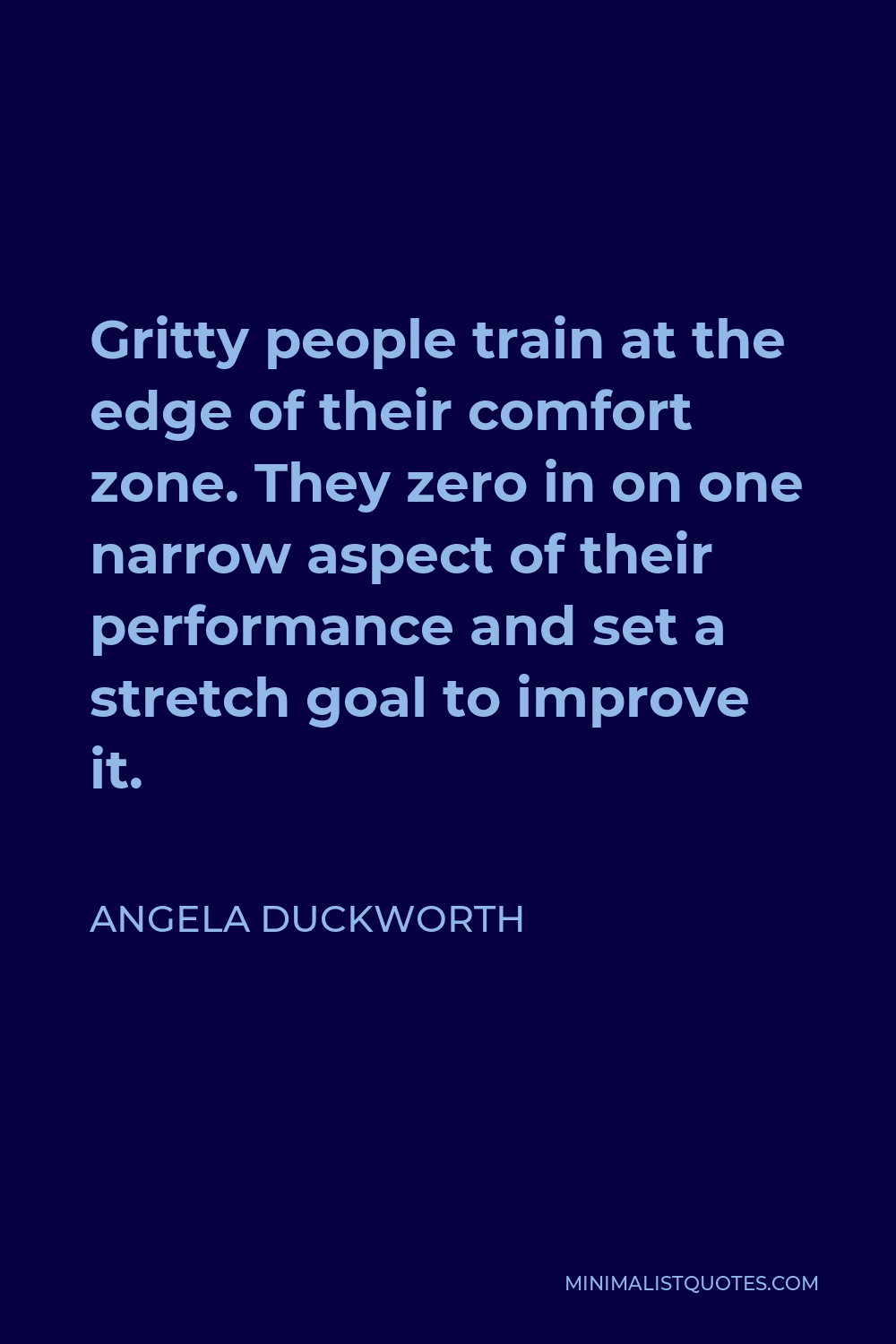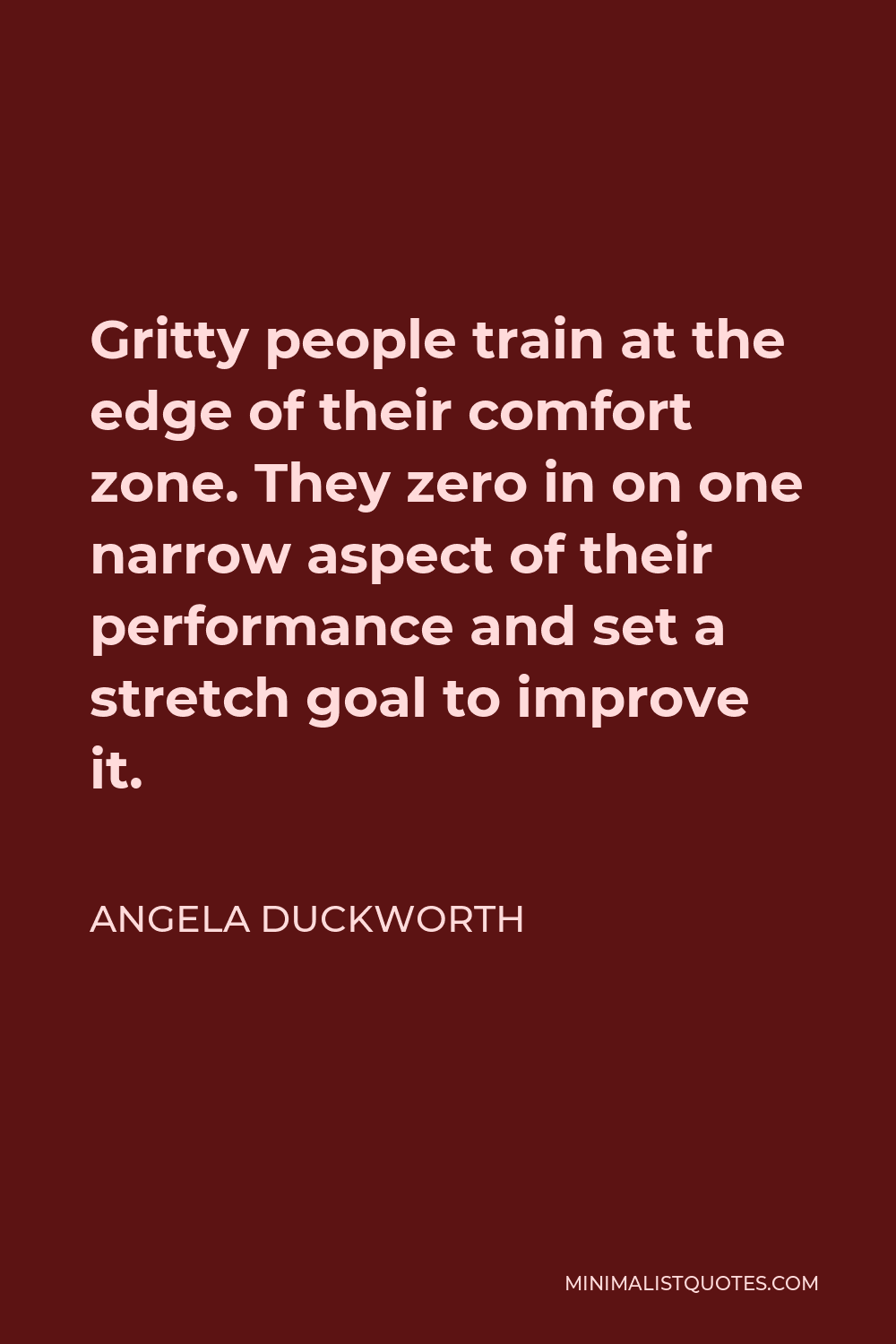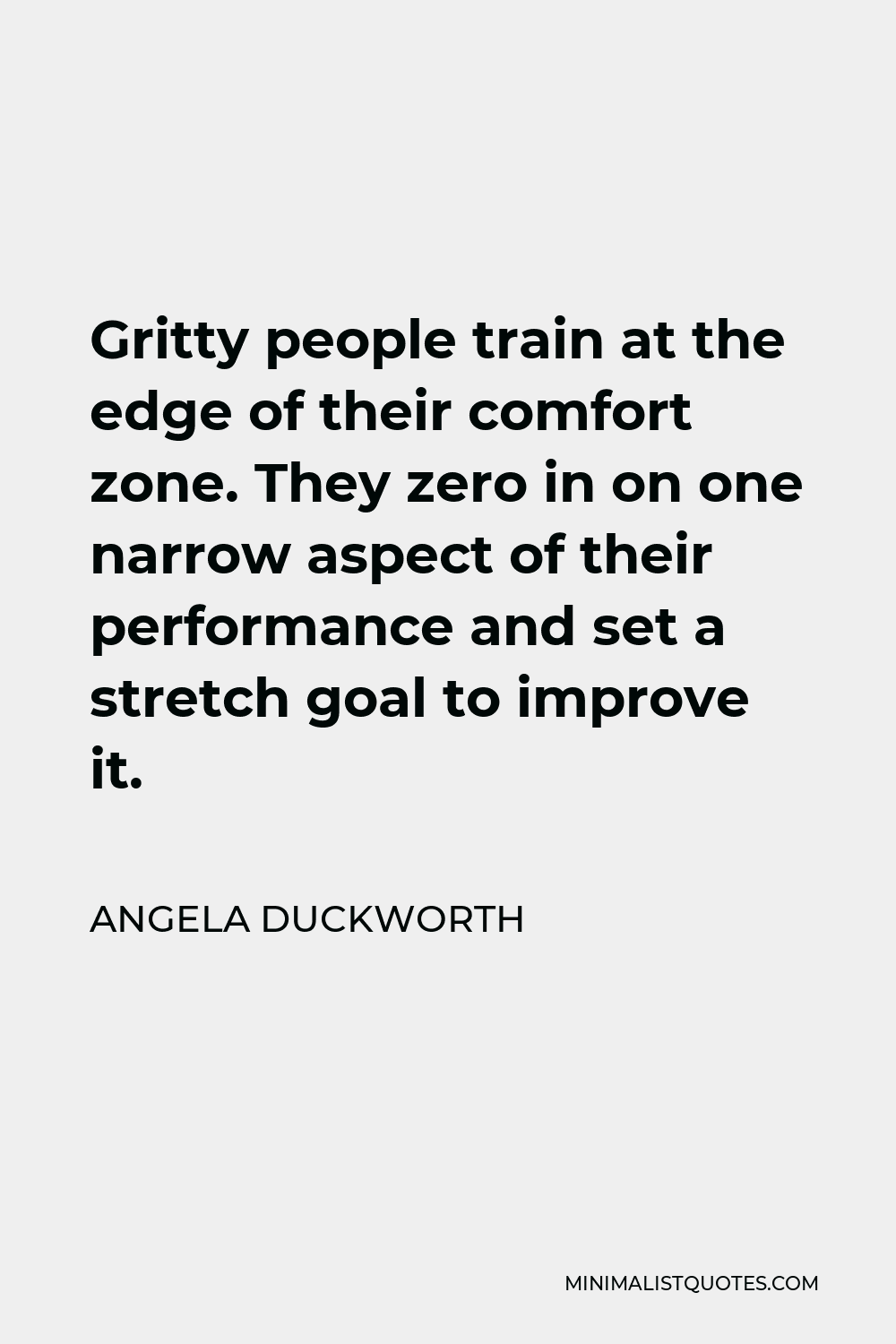As our knees and hips and eyesight deteriorate, we become more dependable, less impulsive, kinder, and less moody.
ANGELA DUCKWORTHGritty people train at the edge of their comfort zone. They zero in on one narrow aspect of their performance and set a stretch goal to improve it.
More Angela Duckworth Quotes
-







-





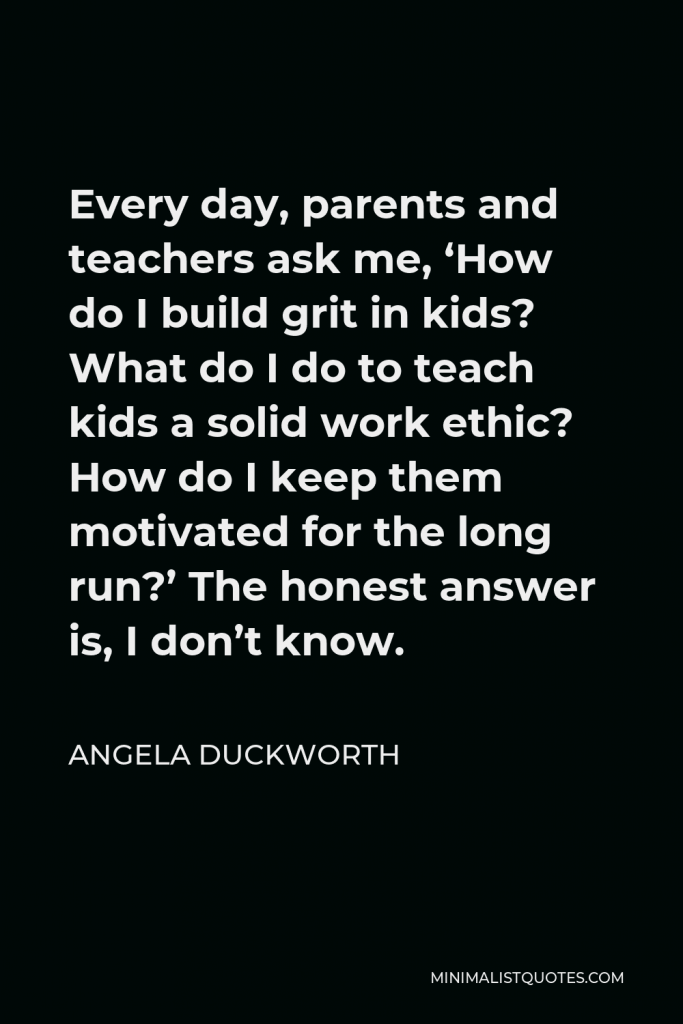

Every day, parents and teachers ask me, ‘How do I build grit in kids? What do I do to teach kids a solid work ethic? How do I keep them motivated for the long run?’ The honest answer is, I don’t know.
ANGELA DUCKWORTH -





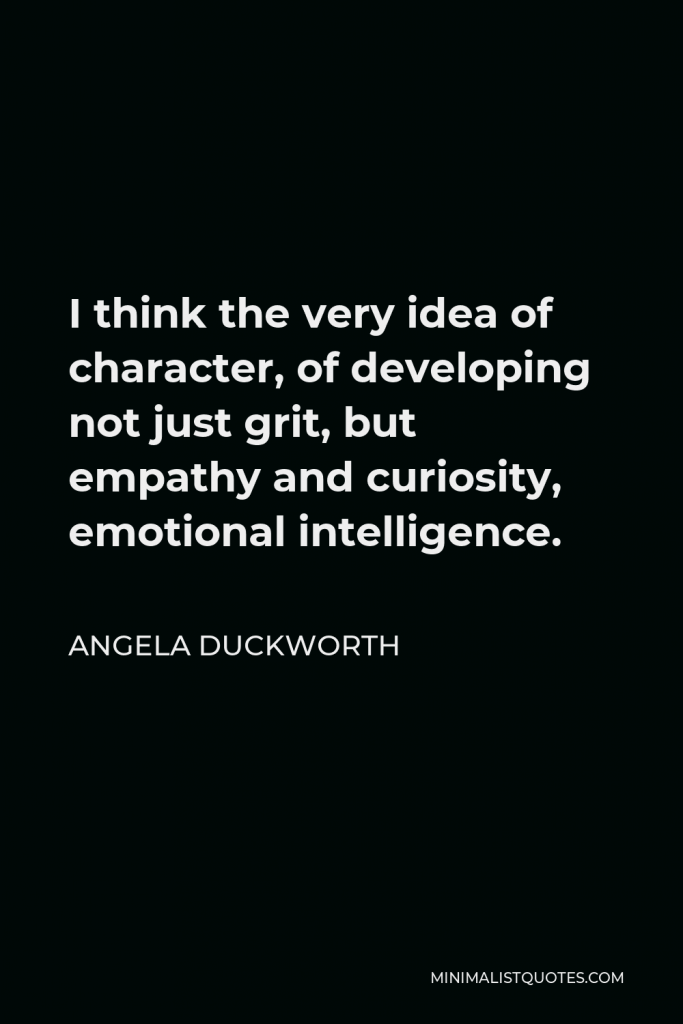

I think the very idea of character, of developing not just grit, but empathy and curiosity, emotional intelligence.
ANGELA DUCKWORTH -







Most teachers, when surveyed, say that it is part of their job to help students develop things like grit. This is especially true at the elementary and middle school levels. They feel it’s part of their vocation to teach other things that are not formally academic content.
ANGELA DUCKWORTH -





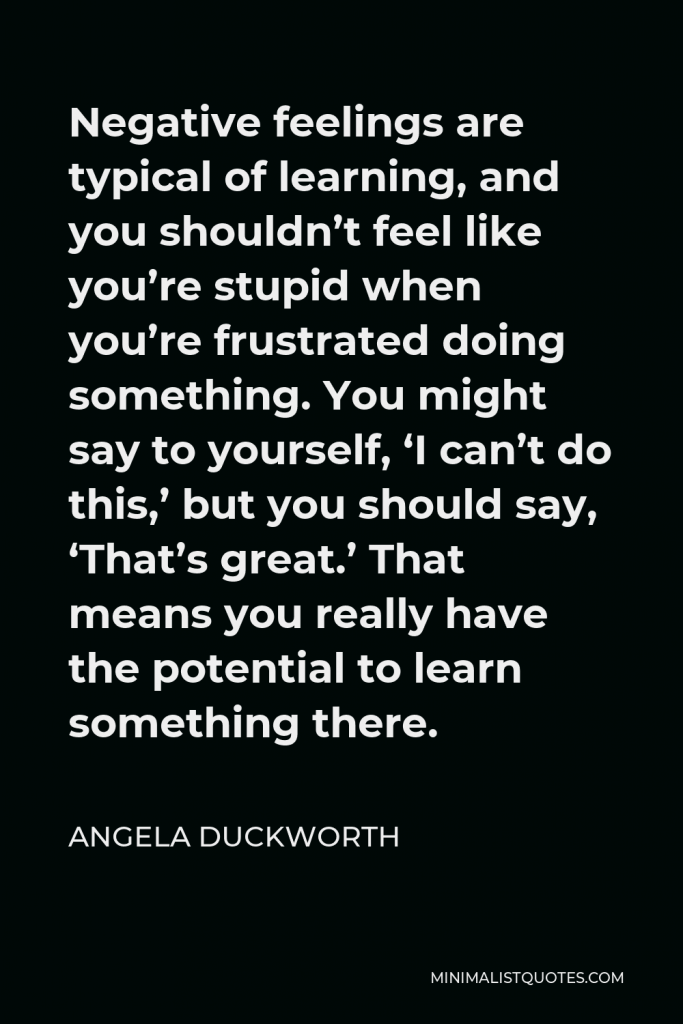

Negative feelings are typical of learning, and you shouldn’t feel like you’re stupid when you’re frustrated doing something. You might say to yourself, ‘I can’t do this,’ but you should say, ‘That’s great.’ That means you really have the potential to learn something there.
ANGELA DUCKWORTH -





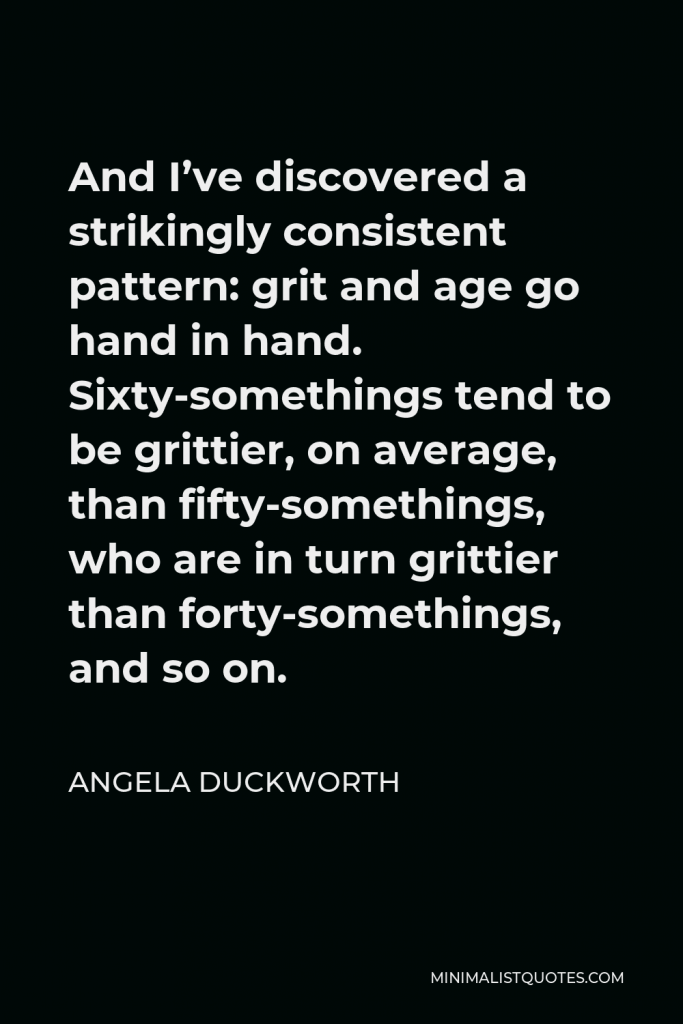

And I’ve discovered a strikingly consistent pattern: grit and age go hand in hand. Sixty-somethings tend to be grittier, on average, than fifty-somethings, who are in turn grittier than forty-somethings, and so on.
ANGELA DUCKWORTH -







The focus on just thinking about standardized test scores as being synonymous with achievement for teenagers is ridiculous, right?
ANGELA DUCKWORTH -







Grittier students are more likely to earn their diplomas; grittier teachers are more effective in the classroom.
ANGELA DUCKWORTH -





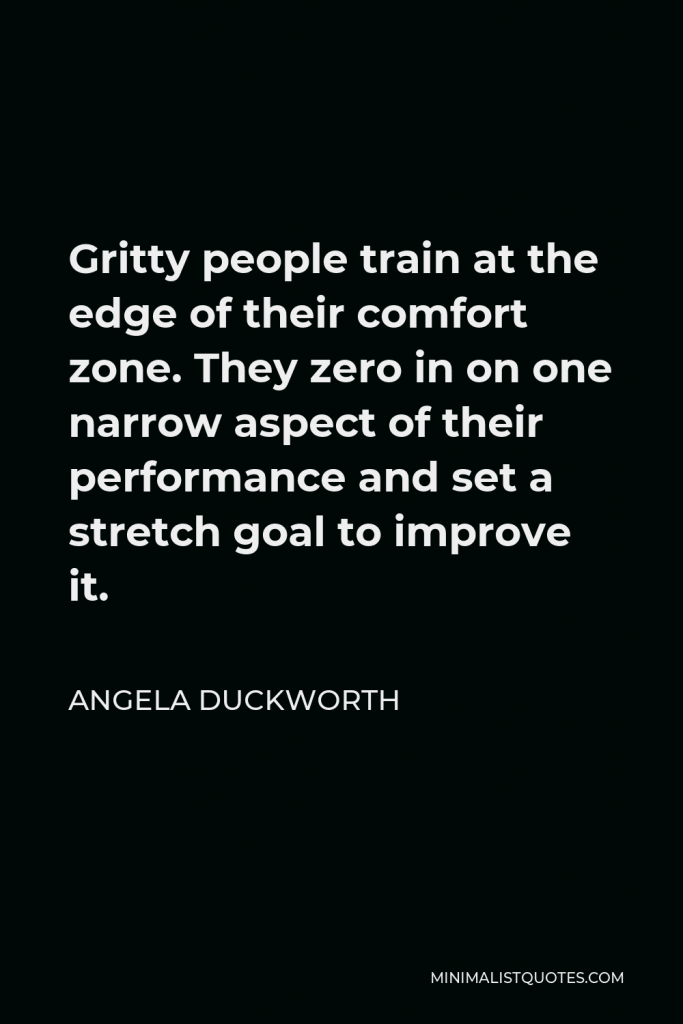

Gritty people train at the edge of their comfort zone. They zero in on one narrow aspect of their performance and set a stretch goal to improve it.
ANGELA DUCKWORTH -







Is it ‘a drag’ that passions don’t come to us all at once, as epiphanies, without the need to actively develop them?
ANGELA DUCKWORTH -





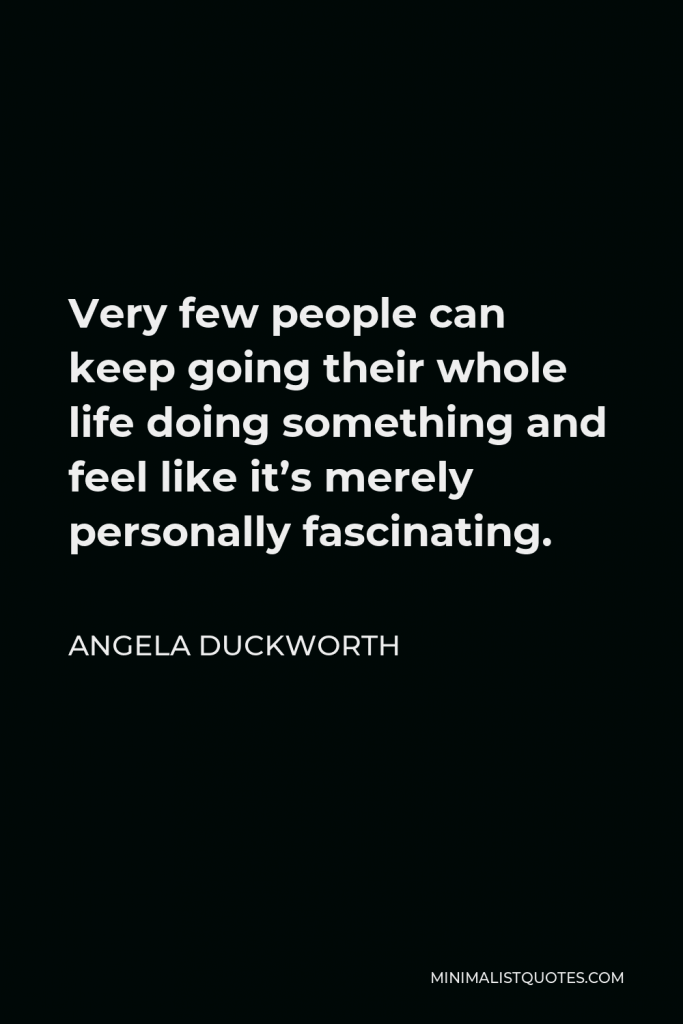

Very few people can keep going their whole life doing something and feel like it’s merely personally fascinating.
ANGELA DUCKWORTH -







There is a fluency and an ease with which true mastery and expertise always expresses itself, whether it be in writing, whether it be in a mathematical proof, whether it be in a dance that you see on stage, really in every domain. But I think the question is, you know, where does that fluency and mastery come from?
ANGELA DUCKWORTH -







I worked hard when I was a consultant. I worked hard when I was in graduate school looking at neuroscience.
ANGELA DUCKWORTH -







Longitudinal studies following thousands of people across time have shown that most people only begin to gravitate toward certain vocational interests, and away from others, around middle school.
ANGELA DUCKWORTH -





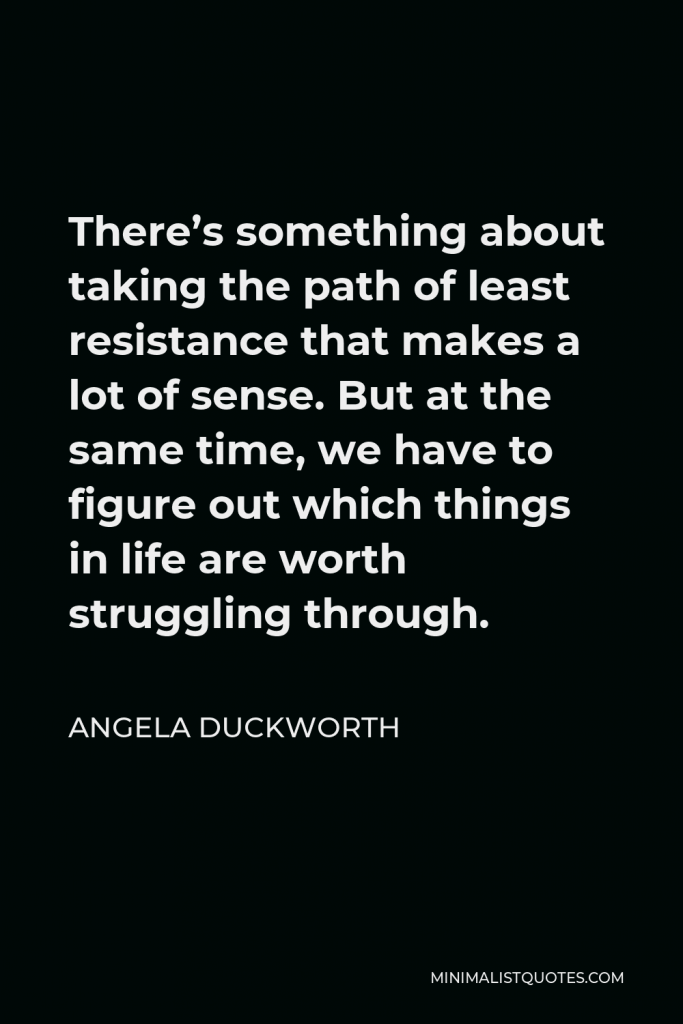

There’s something about taking the path of least resistance that makes a lot of sense. But at the same time, we have to figure out which things in life are worth struggling through.
ANGELA DUCKWORTH -





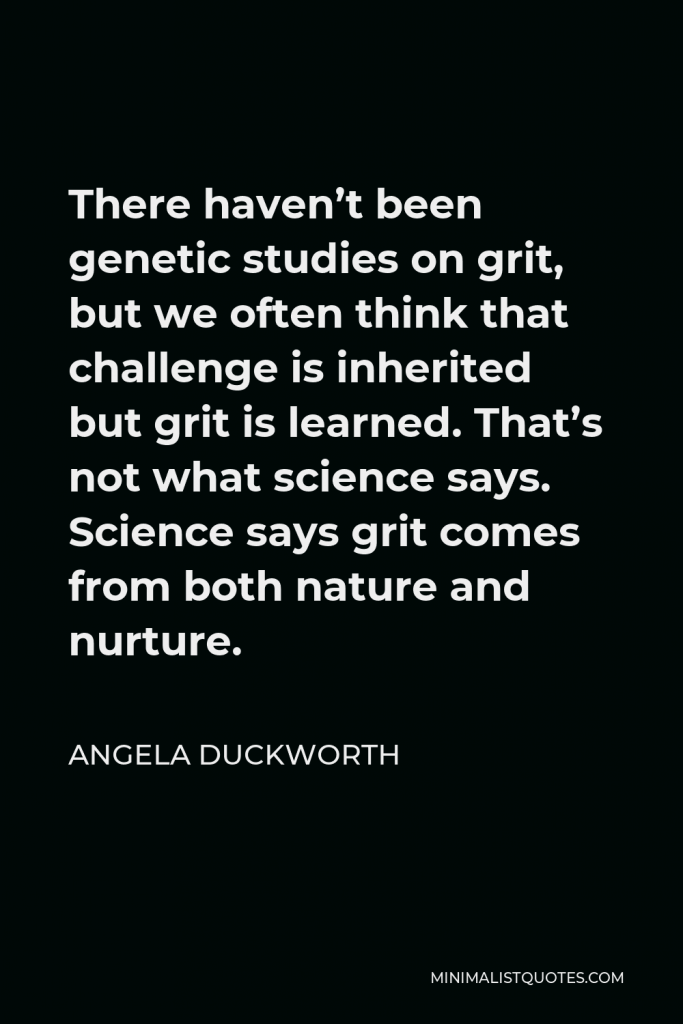

There haven’t been genetic studies on grit, but we often think that challenge is inherited but grit is learned. That’s not what science says. Science says grit comes from both nature and nurture.
ANGELA DUCKWORTH
